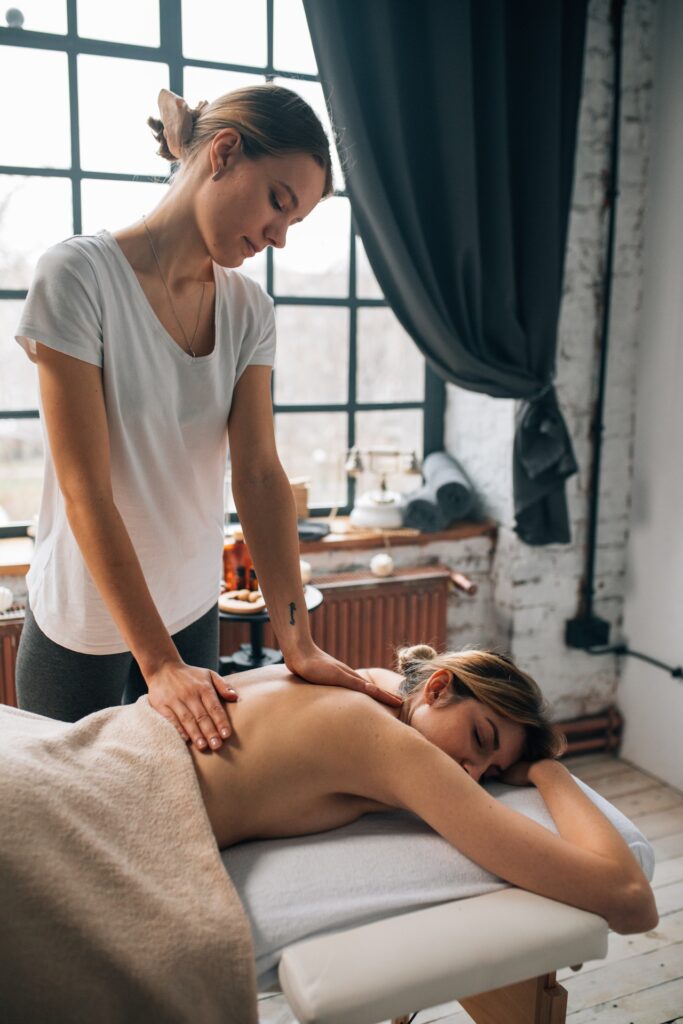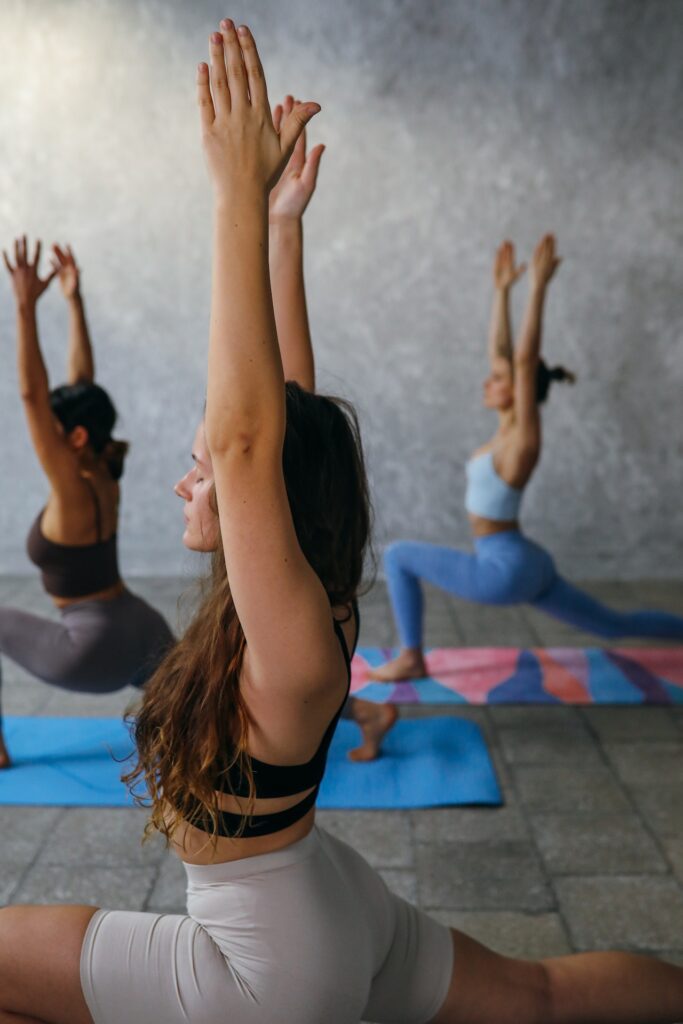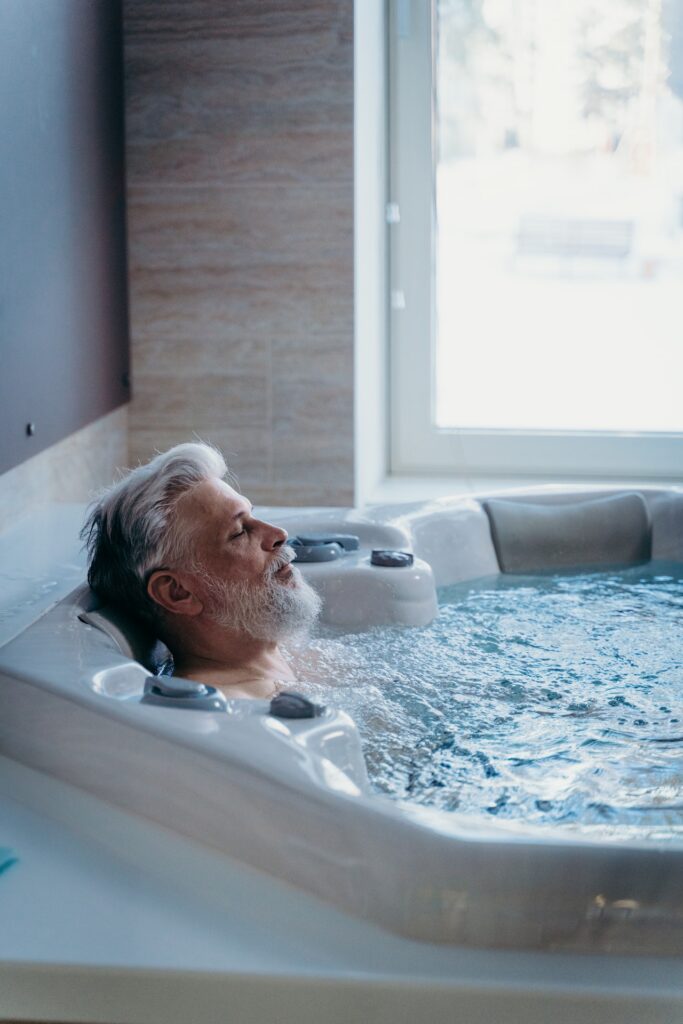
Introduction
Self-care has become a buzzword in recent years and for good reason. It refers to the practice of taking care of oneself, both physically and mentally. Self-care is not new, but it has gained popularity as people have become more aware of the importance of mental health and wellness.
In today’s fast-paced world, it can be easy to neglect self-care in favor of productivity and work. However, taking the time to care for oneself is crucial for maintaining good physical and mental health. In the following article, we will explore the benefits of self-care and provide practical tips for incorporating self-care into daily life.
Self-care is the practice of taking an active role in protecting one’s well-being and happiness, especially during periods of stress. It involves engaging in activities that promote physical, mental, and emotional health. Self-care is essential to maintaining a healthy lifestyle, and it can take many forms, depending on the individual’s needs and preferences.
Self-care can take many forms, and it looks different for everyone. It can include anything from taking a relaxing bath to walking in nature. Self-care aims to prioritize one’s needs and well-being, which can help reduce stress and improve overall health. While self-care is often associated with pampering activities like spa days or massages, it can also be as simple as getting enough sleep or eating a healthy meal.
Types Of Self-Care
There are several types of self-care, including physical, emotional, social, spiritual, and intellectual. Physical self-care involves caring for one’s physical health, such as getting enough sleep, eating a healthy diet, and exercising regularly. Emotional self-care consists in managing one’s emotional well-being, such as managing stress, practicing mindfulness, and engaging in activities that bring joy and fulfillment.
Social self-care consists in building and maintaining positive relationships with others, while spiritual self-care involves connecting with one’s inner self and finding meaning and purpose in life. Intellectual self-care consists of engaging in activities stimulating the mind, such as reading, learning, and exploring new ideas.

The Benefits Of Self-Care
The benefits of self-care are numerous and significant. Self-care can help reduce stress and anxiety, improve mood and emotional well-being, increase self-esteem and confidence, boost physical health, and enhance relationships. It can also help individuals feel more in control of their lives and better equipped to handle challenges and setbacks.
In summary, self-care is a crucial practice that involves actively protecting one’s well-being and happiness. Depending on the individual’s needs and preferences, it can take many forms. Individuals can reap numerous benefits for their physical, mental, and emotional health and their relationships with others by engaging in self-care activities.
Physical Self-Care
Physical self-care involves caring for your body through activities and habits promoting physical health and well-being. This includes exercise, nutrition, sleep, water, and hygiene. Here are some ways to practice physical self-care:
Exercise
Regular exercise is essential for physical health. It helps to maintain a healthy weight, reduce the risk of chronic diseases, and improve overall well-being. Some examples of exercises include jogging, cycling, swimming, or strength training. Aiming for at least 150 minutes of moderate-intensity exercise per week is recommended.
Sleep
Getting enough sleep is crucial for physical health and well-being. It helps to regulate hormones, boost the immune system, and improve cognitive function. Aiming for 7-9 hours of sleep per night is recommended. Establishing a regular sleep routine, avoiding caffeine and electronics before bedtime, and creating a comfortable sleep environment are ways to improve sleep habits.
Nutrition
Eating a balanced and nutritious diet is essential for physical health. It helps to maintain a healthy weight, reduce the risk of chronic diseases, and improve overall well-being. Some ways to improve nutrition include consuming various fruits and vegetables, whole grains, lean proteins, and healthy fats. Staying hydrated by drinking enough water throughout the day is also essential.
Water
Drinking enough water is critical for physical health. It helps to regulate body temperature, transport nutrients, and remove waste from the body. Aiming for 8-10 cups of water per day is recommended. Drinking water before, during, and after exercise can also help to maintain hydration levels.
Hygiene
Maintaining good hygiene is essential for physical health. It helps to prevent the spread of illness and infection. Some ways to practice good hygiene include washing hands frequently, showering regularly, brushing teeth twice daily, and wearing clean clothes.
Incorporating these physical self-care practices into daily life can help to promote physical health and well-being.

Mental and Emotional Self-Care
Mental and emotional self-care are essential components of overall self-care. Taking care of one’s mental and emotional well-being can help reduce stress, improve mood, and increase resilience. Here are some tips for practicing mental and emotional self-care:
Practice Self-Compassion
Self-compassion involves treating oneself with kindness, understanding, and acceptance. It means recognizing that everyone makes mistakes and that it is okay not to be perfect. Practicing self-compassion can help reduce anxiety and depression and increase overall well-being.
Seek Therapy or Coaching
Talking to a therapist or coach can be helpful for those struggling with mental health issues. Therapy can provide a safe and supportive space to explore one’s thoughts and feelings and learn coping strategies for dealing with stress and anxiety. Coaching can help individuals set and achieve goals and develop a positive mindset.
Engage in Relaxation Techniques
Relaxation techniques such as deep breathing, meditation, and yoga can help reduce stress and anxiety. These techniques can help individuals become more mindful and present at the moment and can improve overall mental and emotional well-being.
Practice Gratitude
Practicing gratitude involves focusing on the positive aspects of one’s life and expressing thanks for them. This can help improve mood and increase overall well-being. Keeping a gratitude journal or taking a few moments each day to reflect on what one is grateful for can be helpful.
Engage in Self-Care Activities
Engaging in self-care activities such as taking a bubble bath, walking, or reading a book can help reduce stress and improve mood. Taking time for oneself is essential, and engaging in activities that bring joy and relaxation.
Overall, practicing mental and emotional self-care is essential for overall well-being. By practicing self-compassion, seeking therapy or coaching, engaging in relaxation techniques, practicing gratitude, and engaging in self-care activities, individuals can improve their mental and emotional health and increase resilience.

Social Self-Care
Social self-care is an essential component of overall well-being. It involves cultivating and maintaining healthy relationships with others, setting boundaries, and prioritizing social activities that bring joy and fulfillment.
One of the critical aspects of social self-care is maintaining healthy relationships. This can involve spending time with friends and family, participating in social activities, and engaging in open and honest communication. It is essential to prioritize positive, supportive, and uplifting relationships while setting boundaries with those that may be draining or toxic.
Effective communication is also a critical component of social self-care. This involves expressing one’s thoughts and feelings clearly and respectfully while listening to others actively. Individuals can build stronger, healthier relationships and avoid misunderstandings and conflicts by improving communication skills.
Setting boundaries is another essential part of social self-care. This can involve saying no to social activities that do not align with one’s values or priorities or limiting the time spent engaging in social activities. By setting boundaries, individuals can protect their time and energy and avoid burnout and overwhelm.
Finally, prioritizing social activities that bring joy and fulfillment is crucial for social self-care. This can involve participating in hobbies, volunteering, or spending time with loved ones. By prioritizing activities that bring joy, individuals can improve their overall well-being and strengthen their relationships with others.
In conclusion, social self-care is an essential component of overall well-being. Individuals can improve their quality of life and strengthen their connections by cultivating healthy relationships, improving communication skills, setting boundaries, and prioritizing social activities that bring joy and fulfillment.

Spiritual self-care is an essential aspect of overall self-care. It involves connecting with one’s inner self, higher power, or personal beliefs to find peace, purpose, and fulfillment. Spiritual self-care can take many forms, including religious practices, meditation, mindfulness, and gratitude.
Participating in religious practices can provide spiritual self-care for religious people. Attending religious services, reading sacred texts, and praying are all ways to connect with one’s faith and find comfort and guidance.
Meditation and mindfulness practices can also be a powerful tool for spiritual self-care. These practices involve focusing on the present moment and letting go of distractions and worries. Meditation and mindfulness can help reduce stress, improve mental clarity, and promote feelings of calm and relaxation.
Another way to practice spiritual self-care is by cultivating gratitude. This involves focusing on the positive aspects of one’s life and expressing gratitude for them. Gratitude practices can include keeping a gratitude journal, writing thank-you notes, or simply taking a few moments each day to reflect on what one is thankful for.
Overall, spiritual self-care is an essential aspect of overall well-being. By connecting with one’s inner self and personal beliefs, individuals can find peace, purpose, and fulfillment.
Self-Care Strategies
Self-care is essential for maintaining good physical and mental health. Developing a self-care routine can help reduce stress and promote relaxation. It is important to prioritize self-care even when busy and faced with stressors. Here are some self-care strategies that can help:
Say No
One of the most important self-care strategies is to learn to say no. It can be challenging to say no, mainly when one is used to saying yes to everything. However, saying no can help reduce stress and prevent burnout. It is crucial to set boundaries and prioritize one’s own needs.
Nurturing Activities
Engaging in nurturing activities is also an essential self-care strategy. This can include activities like taking a warm bath, reading a book, or walking in nature. Nurturing activities can help promote relaxation and reduce stress.
Create a Self-Care Plan
Creating a self-care plan can help ensure that one is prioritizing self-care. A self-care plan can include exercise, meditation, or spending time with loved ones. It is vital to create a program that is realistic and achievable.
Prioritize Goals
Prioritizing goals is another crucial self-care strategy. Setting achievable goals and working towards them can help boost self-esteem and promote a sense of accomplishment. It is essential to set goals that are aligned with one’s values and interests.
Relaxation Techniques
Relaxation techniques like deep breathing or progressive muscle relaxation can also be helpful self-care strategies. These techniques can help reduce stress and promote peace. Incorporating relaxation techniques into a daily routine can help promote overall well-being.
In summary, self-care is essential for maintaining good physical and mental health. Developing a self-care routine that includes saying no, engaging in nurturing activities, creating a self-care plan, prioritizing goals, and incorporating relaxation techniques can help promote overall well-being.

Self-Care in the Workplace
Self-care is not only essential for maintaining good mental and physical health, but it is also crucial for improving work performance. Practicing self-care in the workplace can help employees manage stress, prevent burnout, and increase productivity. Here are some tips on how to incorporate self-care into the work environment:
Set Boundaries
Establishing boundaries between work and personal life is essential to avoid burnout. One way to do this is by setting specific work hours and sticking to them. Employees should also avoid checking work emails or taking calls during personal time. By setting boundaries, employees can maintain a healthy work-life balance and prevent work from taking over their personal life.
Organize the Work Environment
A cluttered and disorganized workspace can cause stress and reduce productivity. Employees should take the time to organize their workspace and keep it tidy. This can help reduce stress and make it easier to focus on work tasks.
Practice Stress-Relieving Techniques
Stress is a common issue in the workplace, but there are many ways to manage it. Employees should consider practicing stress-relieving techniques such as meditation, deep breathing, or yoga. These techniques can help reduce stress and increase focus and productivity.
Seek Support from a Coach or Mentor
Employees struggling with work-related stress or burnout may benefit from seeking support from a coach or mentor. These professionals can provide guidance and support to help employees manage their workload and maintain good mental health.
In summary, incorporating self-care into the workplace is essential for maintaining good mental and physical health and improving work performance. Employees can manage stress, prevent burnout, and increase productivity by setting boundaries, organizing the work environment, practicing stress-relieving techniques, and seeking support from a coach or mentor.

Luxury vs. Basic Self-Care
Self-care has become a buzzword recently, but there is often confusion about what it means. Some people consider self-care a luxury, only for those with the time and money to indulge in spa treatments and other expensive activities. However, self-care is a basic need that everyone should prioritize in their lives.
Essential self-care is about meeting your fundamental needs, such as getting enough sleep, eating nutritious food, staying hydrated, and exercising regularly. These activities are necessary for maintaining your physical and mental health and don’t have to be expensive or time-consuming. Important self-care can often be done for free or with minimal costs, such as walking or practicing yoga at home.
On the other hand, luxury self-care is about indulging in activities that feel good and help you relax, such as getting a massage, taking a bubble bath, or going on a vacation. While these activities can be beneficial for reducing stress and promoting relaxation, they are not essential for your overall well-being. Prioritizing basic self-care activities before indulging in luxury self-care is necessary, as neglecting your basic needs can lead to burnout and other health problems.
Finding a balance between essential and luxury self-care is critical to maintaining energy and well-being. While essential self-care should be a top priority, making time for activities that bring you joy and help you recharge is also necessary. However, it’s important to be mindful of your budget and not overspend on luxury self-care activities outside your means.
In conclusion, self-care is not a luxury but a basic need everyone should prioritize. Basic self-care activities are essential for maintaining your physical and mental health, while luxury self-care activities can be beneficial for reducing stress and promoting relaxation. Finding a balance between the two is critical to achieving well-being and maintaining energy and balance.
Global Self-Care
Self-care is the ability of individuals, families, and communities to promote health, prevent disease, maintain health, and cope with illness and disability with or without the support of a health worker. The Global Self-Care Federation (GSCF) defines self-care as “the practice of individuals looking after their own health using the knowledge and information available to them.” The GSCF is a non-profit organization that represents associations and companies that promote self-care across the world.
The World Health Organization (WHO) recognizes self-care as an essential component of primary health care. The WHO emphasizes the importance of self-care in achieving universal health coverage, improving health outcomes, and reducing health inequalities. Self-care interventions can help individuals take control of their health, reduce the burden on health systems, and improve health outcomes.
Self-care is not limited to physical health but also includes mental health and well-being. The WHO identifies eight domains of self-care, including hygiene, physical activity, healthy eating, responsible use of products and services, prevention and self-diagnosis, self-treatment, seeking prompt medical attention when necessary, and responsible self-medication.
Self-care can also have a positive impact on the environment. By practicing responsible use of products and services, individuals can reduce their environmental footprint. For example, using reusable bags, water bottles, and containers can help reduce waste and protect the environment.
Self-care is a lifelong process that can benefit individuals throughout their lifespan. The GSCF promotes self-care across all age groups, from children to the elderly. By promoting self-care, individuals can take an active role in their health and well-being and improve their quality of life.
In summary, self-care is a critical component of primary health care that can improve health outcomes, reduce the burden on health systems, and promote health and well-being across the lifespan. The GSCF and WHO recognize the importance of self-care and promote its practice across the world.
Conclusion
In conclusion, self-care is an essential activity that everyone should prioritize in their daily lives. It is not a selfish act but rather a way to ensure that one’s physical, emotional, and mental well-being is handled. By engaging in self-care activities, individuals can reduce stress, increase their overall happiness, and improve their relationships with others.
Self-care can take many forms, and finding the best activities for each person is essential. Some examples of self-care activities include exercise, meditation, time in nature, reading, or relaxing. It is crucial to make time for these activities regularly and to treat them as a necessary part of one’s daily routine.
It is also important to remember that self-care is not a one-size-fits-all solution. What works for one person may not work for another, and it may take some trial and error to find the appropriate self-care activities that work for each individual. It is also essential to seek professional help, as self-care is not a substitute for medical or mental health treatment.
Overall, self-care is a vital part of maintaining a healthy and happy life. Individuals can improve their well-being and lead more fulfilling lives by prioritizing self-care activities.
Frequently Asked Questions
Self-care is a broad topic that can be confusing for many people.
Here are some frequently asked questions about self-care:
Q: What is self-care?
A: Self-care is caring for oneself physically, mentally, and emotionally. It involves engaging in activities that promote well-being and reduce stress.
Q: Why is self-care important?
A: Self-care is essential because it helps individuals maintain their physical and mental health. It can also improve their quality of life by reducing stress, improving mood, and increasing resilience.
Q: What are some examples of self-care?
A: Examples of self-care include:
- Eating a healthy diet
- Getting enough sleep
- Exercising regularly
- Practicing mindfulness or meditation
- Spending time in nature
- Engaging in hobbies or activities that bring joy
- Spending time with loved ones
- Seeking professional help when needed
Q: Is self-care selfish?
A: No, self-care is not selfish. It is essential to take care of oneself to care for others. Engaging in self-care can also improve relationships by reducing stress and improving mood.
Q: How often should someone practice self-care?
A: The frequency of self-care varies from person to person. It is essential to incorporate self-care activities into one’s daily routine, but the amount of time spent on self-care may vary depending on individual needs and circumstances.
Q: What are some barriers to practicing self-care?
A: Some common barriers to practicing self-care include lack of time, lack of resources, and feeling guilty or selfish for taking time for oneself. Identifying these barriers and finding ways to overcome them to prioritize self-care is essential.
Share via:


Pingback: How To Find Your Spark: Manifesting Love and Relationships
Pingback: How To Unlock Prosperity: Five Steps to Attract Abundance